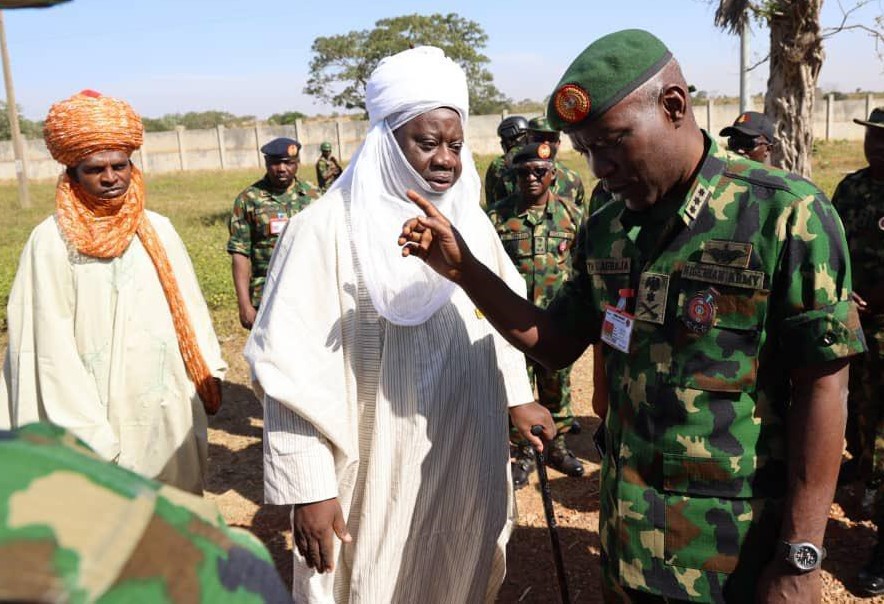If you were told that a professional army that is constitutionally tasked to protect the lives of its fellow compatriots had within a decade bombed these same compatriots not once or twice but an incredible 16 times killing hundreds of lives, your first inclination will be to wonder whether that army was truly a professional one that goes strictly by the rules of engagement (ROE) governing the conduct of professional armies in the theatre of combat.
The Nigerian Army used to be referred to as “the best army north of Pretoria” and for justifiable reasons. This is a distinction that Nigerian soldiers had attained as a regiment of the British colonial army in military campaigns in far-flung places such as Myanmar, Somalia, North Africa and so on. It is not out of place to say that the contribution of Nigerian soldiers was pivotal to the conquest of West Africa by the British. That accounts for why Kaduna was the headquarters of the British West African Frontier Force (WAFF) during the colonial period.
This tradition was continued even after independence with Nigeria participating in many peacekeeping operations in Africa and beyond. Virtually all the officers of the Nigerian Army in the immediate post-independence years of the nation had served with distinction in this regard. Indeed, Nigeria’s Major General Thomas Ummunakwe Aguiyi Ironsi (known affectionately as “Ironside” who later became the first military head of state) was the first African to head a United Nations peacekeeping force. This he did in the early sixties in the Congo.
The area of the military in which the Nigerian Army earned its distinction most was in the Infantry. So professionally excellent the Nigerian army was in this regard that it was rated at one time as the fourth-best Infantry force in the world. This was no mean feat because in the army the Infantry Corp is among the ‘’teeth arms’’ of the military along with the Armoured Corp, Artillery, Ordinance, Intelligence, Signals etc. Because of the difficult tasks it is called to perform in combat operations, the Infantry boys are called the “blood and guts” of the army, which they wear proudly.
Advertisement
In practical terms, the Nigerian Army had proven this deserved accolade in many operations. During the civil war, the third Marine Commando Force led by the late indefatigable Brigadier-General Benjamin Maja Adekunle conducted one of the greatest amphibious landings in the annals of African warfare by successfully landing and capturing the difficult riverine areas of Nigeria against the Biafran forces. This same Army knocked the stuffing out of the Chadian forces foolish enough to invade and occupy Nigerian territory in the northeast. And what had to be the icing on the cake was the successful ECOMOG operations Nigeria conducted in Liberia and Sierra Leone against rebel groups that had taken these countries hostage. The Nigerian Army did this with very little prior knowledge of the terrain of operations, extended supply lines and hostile and indifferent locals.
Anybody who knew the exploits of the Nigerian Army of yore will marvel at how with all the advantages available to it, it has become such a heavy task for them to make short work of internal irregular insurgents that have practically laid siege on the country. The excuse used to be that this was not conventional warfare but a kind of guerrilla warfare with the initiative mostly on the side of the irregulars.
But now having been at it for such a period, the Nigerian Army should have been able to develop the capacity to bring the insurgency that has ravaged the country for decades now to an end. The Army should have developed the capacity to cope with the asymmetrical nature of the war against insurgents to minimize if not eliminate the kind of “mistakes” that happened in Tudun Biri in Kaduna state last week.
Advertisement
The unfortunate Tudun Biri incident exposed a lot of things about the current Nigerian Army; It showed a gap in intelligence gathering and operations in an area strewn with military formations. It showed a knowledge gap in the operation of drones and airborne combat devices; it brought to the fore the perennial issue of service rivalry this time between the Army and Air Force.
But above all, the Tudun Biri incident showed that the entire Nigerian military needs a new orientation in its dealings with the civil populace. Whereas the Chief of Army Staff did the appropriate thing by promptly visiting the community to assess the situation and offering condolences and assurances, the Army and Defence Headquarters contradicted themselves on the true nature and scope of the incident. Indeed the initial statements emanating from the Army portrayed a lack of sensitivity and responsibility for what happened to a community that had lost scores of people owing to the action by the Army. It was as if the Army was operating in a foreign location against foreigners, not the people it was constitutionally tasked to protect.
President Tinubu has done the right thing by taking a firm stand promising to launch an investigation into the incident. This investigation must be thorough and those found guilty must be sanctioned to deter future occurrences. The incidence of bombing innocent citizens and indeed of uniformed men wantonly assaulting Nigerians just because they possess the means of enforcement must stop.
The Tudun Biri incident must be regarded as the threshold for such occurrences which subsequently must be punished under the ambit of the law.
Advertisement
Our condolences go to the Tudun Biri community, the Igabi local and Kaduna state governments. Although their losses can never be replaced adequate compensation must be provided to the victims of this sad incident.
Gadu can be reached via [email protected] or 08035355706 (texts only).
Views expressed by contributors are strictly personal and not of TheCable.
Add a comment






